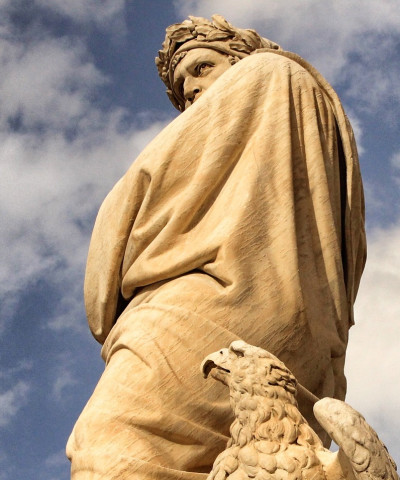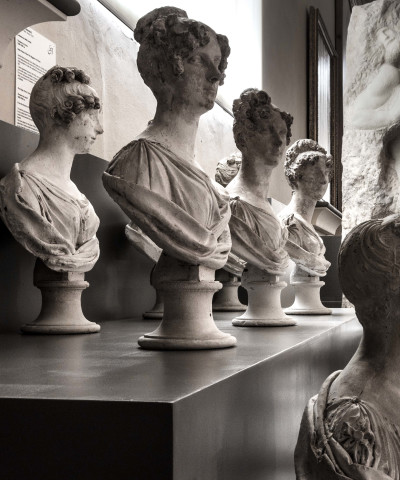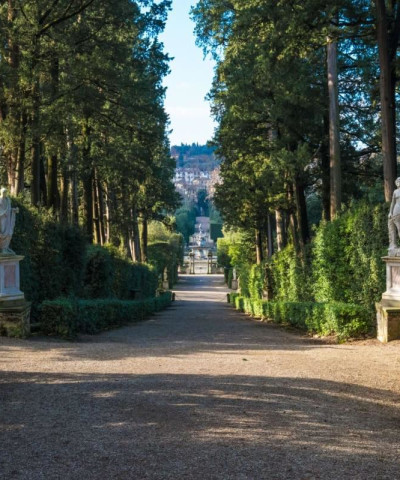All you need to know about the Baptistery of Florence
Come with us, we'll take you for a walk with Dante in Bel San Giovanni
Freed from the last scaffolding, which allowed the restoration of the eight internal facades, the Baptistery of Florence is once again visible in all its beauty. The magnificent wall mosaics and those that cover the vault and the triumphal arch of the apse, the latter among the most representative in the grandiose mosaic cycle of the "beautiful San Giovanni", as Dante called it, shine with their newfound colour.
On this occasion, we take a closer look at some of its history.
Certainly Francesco I dei Medici must have remembered Dante's feats when, in 1576, he had the baptismal font removed for the christening of his first son. Too bulky and dangerous.
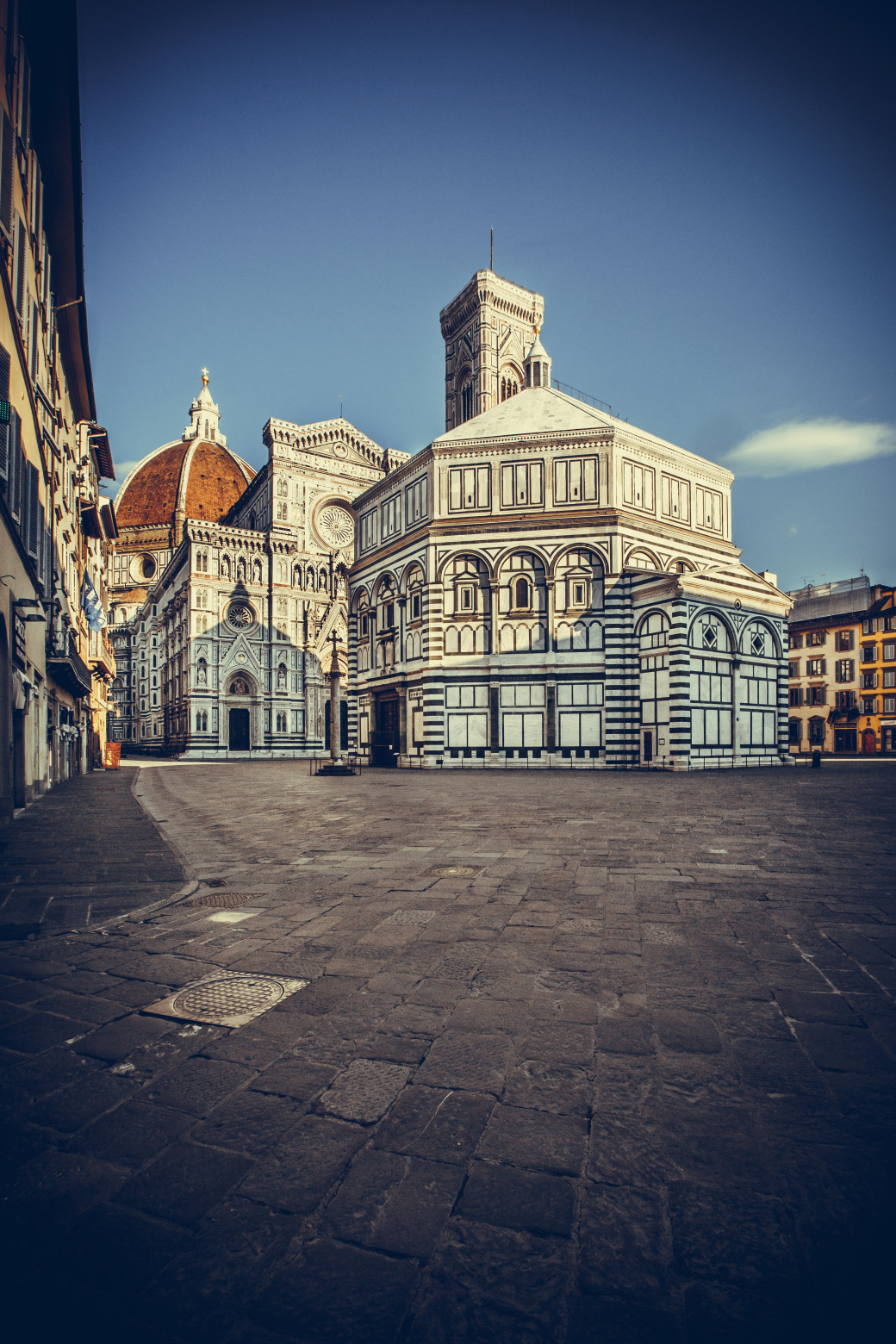 Piazza del Duomo, Firenze
Piazza del Duomo, FirenzeEven the supreme poet must have had some doubts about this if, recalling his courageous promptness in freeing a drowning child, he veiled criticism of him.
And then who would dive anymore? After all, already from the time of Cosimo the Elder, sacred rigour was being adapted to more prosaic needs. As happened to the door that Michelangelo called Paradise, with the stories of Genesis.
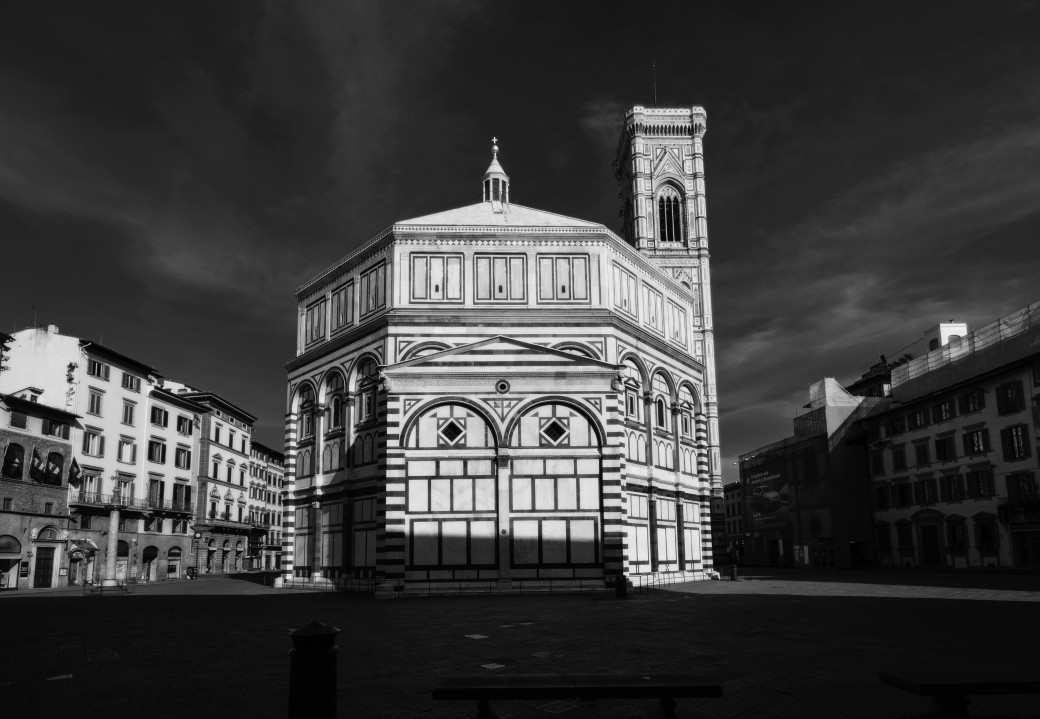 The Baptistery of Piazza Duomo
The Baptistery of Piazza DuomoIt was supposed to open on the north side of the octagonal structure, but Ghiberti's work was judged too beautiful for such a secondary position and, forcing religious logic, the Old and not the New Testament stands in front of the cathedral.
Loaded with symbolism, from the octagon commemorating Judgement Day, to the three openings for neophytes to the north, for the clergy to the south and for the baptised to the east, the history of the Baptistery, only witnessed from the 9th century onwards, has its roots in Roman times.
It was not, however, the temple of Mars, as Vasari asserted, but a domus. In any case, the Bel San Giovanni as Dante calls it, has always fascinated.
Starting with the inlaid zodiac on the floor, whose solstitial function, however, disappeared with the closing of the oculus on the dome. Not to mention the tomb of the antipope John XXIII who, thanks to his friendship with Giovanni di Bicci, managed, only he in truth, to be buried in the Baptistery with a monument signed by Donatello and Michelozzo.
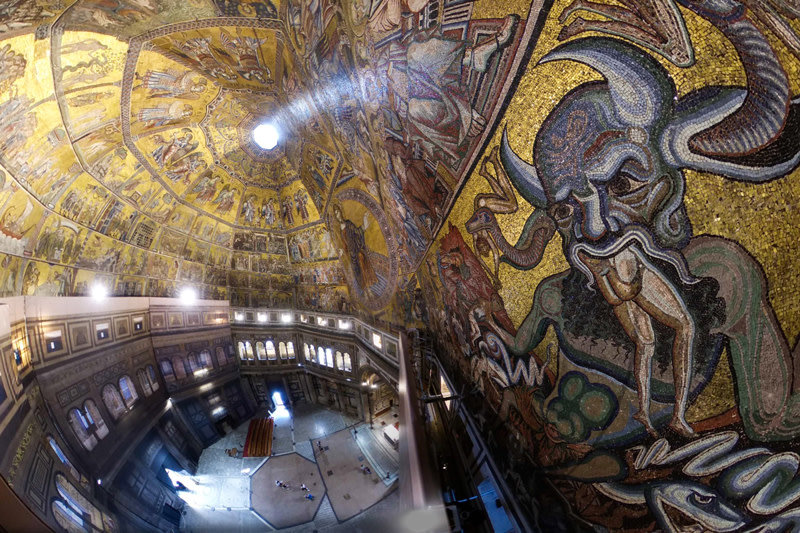 Florence, Baptistery of San Giovanni ‘No smaller or no larger they seemed to me / Than are those booths for the baptismal font[...]’(Hell XIX 16-18). ph. Massimo Sestini
Florence, Baptistery of San Giovanni ‘No smaller or no larger they seemed to me / Than are those booths for the baptismal font[...]’(Hell XIX 16-18). ph. Massimo Sestini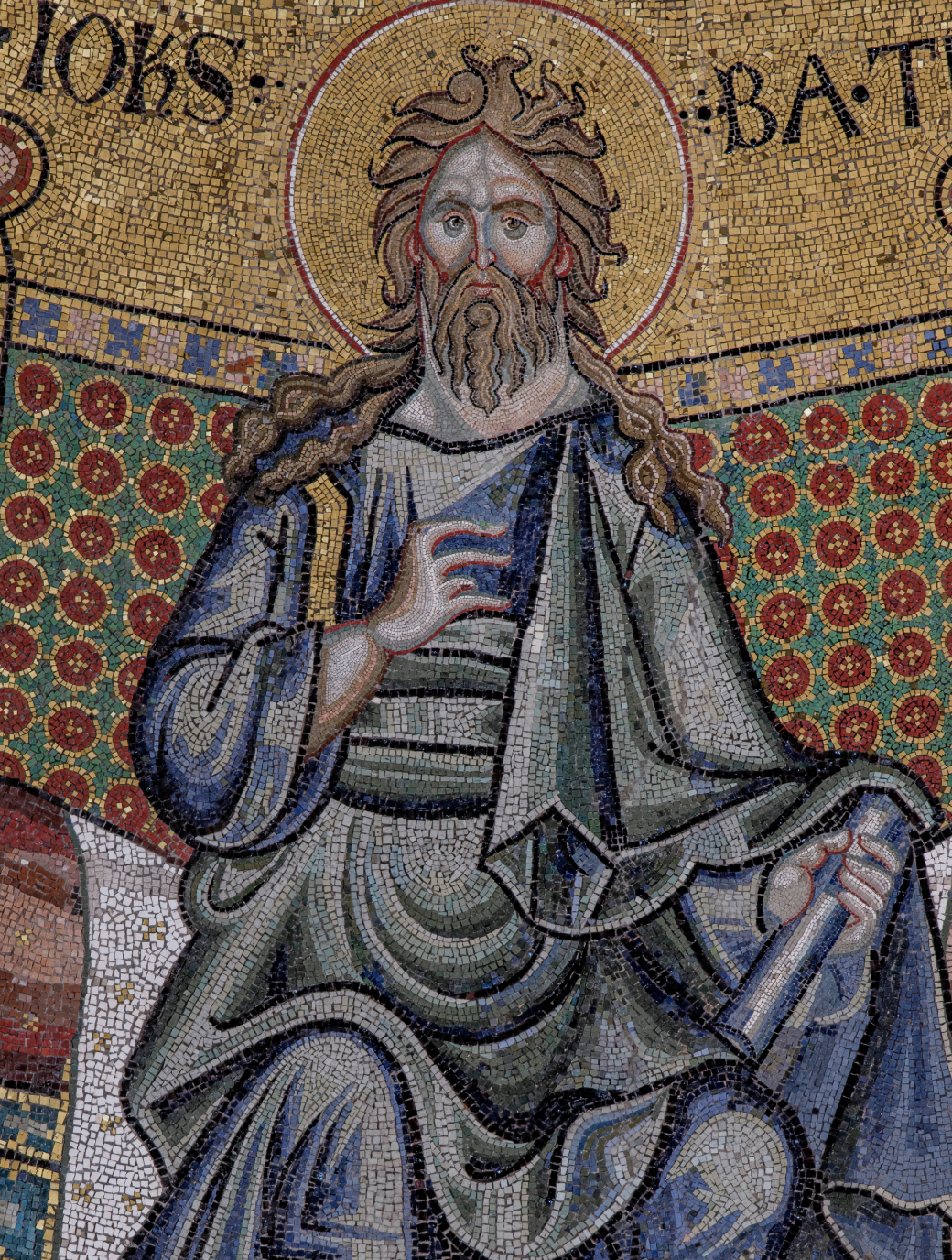 Battistero, Scarsella, Volta, Maestro del Crocifisso, San Giovanni Battista
Battistero, Scarsella, Volta, Maestro del Crocifisso, San Giovanni BattistaHe is not a pope, but so be it. And yet the real attraction of that jewel box covered in two-coloured marble on the outside is the octagonal dome (it inspired and influenced Brunelleschi), completely covered in glittering mosaics. A rarity for Florence.
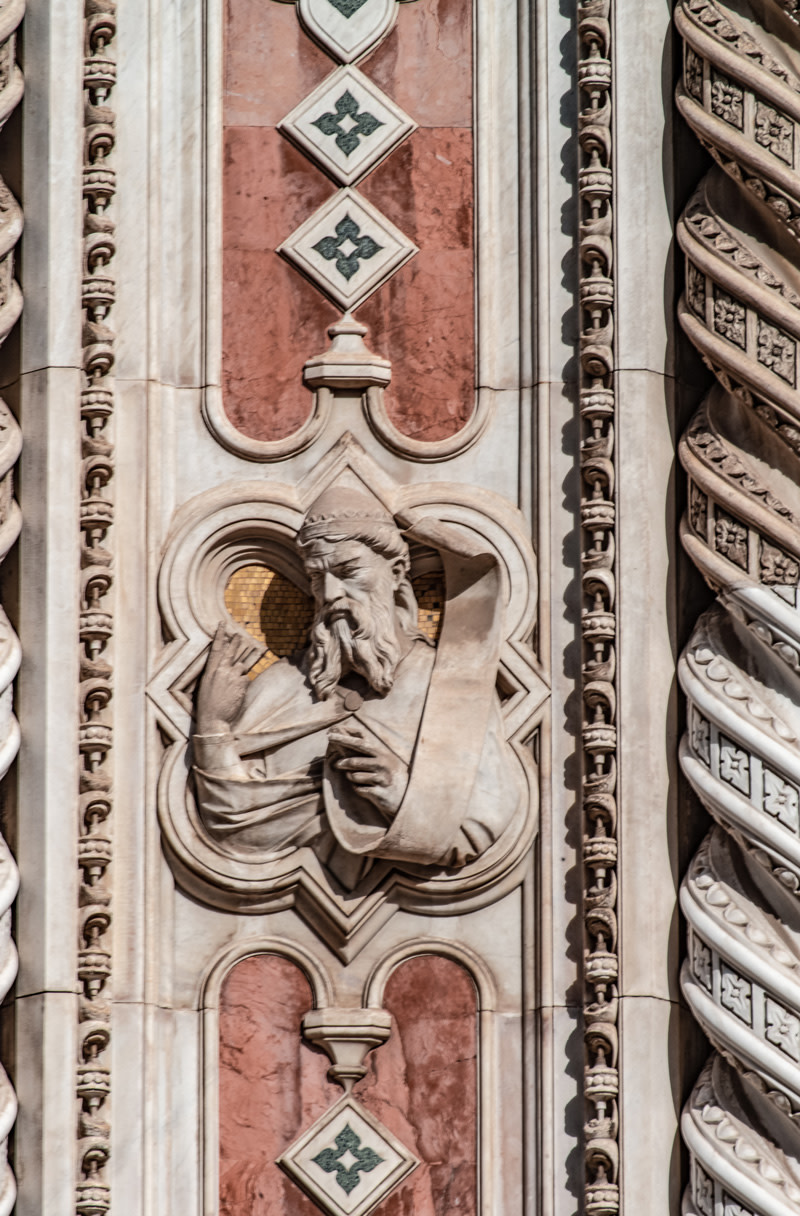 Battistero of San Giovanni, ph. Ottavia Poli
Battistero of San Giovanni, ph. Ottavia PoliAnd who captivated Dante for his Inferno among mischievous demons, corrupt monks and the Satanasso of Coppo di Marcovaldo busy eating reluctant bodies. One risks dizziness but it is worth following the stories (counterclockwise) that unfold in bands from Genesis to Joseph the Jew, a beloved character of the Florentines, and from the Baptist to Christ. With the final judgement that virtually communicates with Vasari's judgement of the Duomo.









